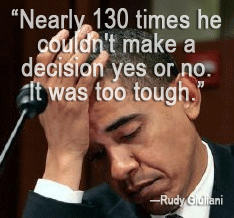
The U.N. Human Rights Council in session in Geneva. (U.N. Photo by Jess Hoffman)
During discussions in 2005-6 about creating a replacement for the unwieldy, scandal-ridden U.N. Commission on Human Rights (UNCHR), the Bush administration pushed strongly for a small (preferably 20 member) body with strict membership criteria, including a clear exclusion for any country placed under U.N. Security Council sanctions for rights violations or terrorism.
But the U.S. was negotiating at the time with 190 other U.N. member states, and the end result was a 47-seat council “open to all” countries.
The resolution creating the Human Rights Council (HRC) said members were merely expected to “uphold the highest standards in the promotion and protection of human rights,” but there was no way to enforce this.
The resolution also called on all countries to consider the records of candidates when voting to fill council seats. Yet in the years since then, countries with poor records -- including China, Saudi Arabia, Libya, Russia, Cuba, Pakistan, Tunisia and Egypt -- have been voted onto the council.
Moreover, the resolution allowed a country to win a seat by simple majority (96 out of the then 191 member states of the U.N.). Then-U.S. Ambassador to the U.N. John Bolton had pushed unsuccessfully for a two-thirds threshold, or 128 countries.
On the other hand, any attempt to suspend a member requires support of two-thirds of members, whereas Bolton had argued for one-third. The outcome means it is considerably easier for a state with a dubious record to be elected to the council than to lose its seat.
The mechanism known as the “universal periodic review” (UPR), under which each country submits a report and is assessed by the HRC every four years, was supposedly intended to overcome the concerns.
The U.S. had been strongly supportive of the plan to replace the 60-year-old UNCHR. “When Sudan and Zimbabwe sit on it and somehow cast judgment on democratic countries like the United States, it is objectionable and it’s indefensible,” then-Under Secretary of State Nicholas Burns said of the commission in 2005.
But in the end the U.S. was one of just four countries to vote against the resolution establishing the new council in March 2006. It argued that the new HRC did not go far enough to avoid the very problems hat had discredited its predecessor.
Bolton told Fox News late last week that the universal periodic review was among the reasons behind the U.S. decision not to support the resolution in 2006.
“An earlier version of this idea was intended to help keep human rights violators off the Human Rights Council, but in the negotiations that was junked, simply leaving this requirement that all 192 members of the U.N. submit these reports once every four years,” he said.
The U.S. participated in the new body as an observer, but later ended even that limited involvement, citing the presence on the council of some countries with poor rights records and its repeated targeting of Israel.
But the Obama administration joined the Human Rights Council last year, saying that while the body was imperfect, the U.S. could work to improve it most effectively by being a member.
The U.S. is scheduled to go through the UPR process in November, and it was in preparation for that occasion that the State Department last week released a self-assessment of human rights in the U.S.
As reported earlier, the report contained a pledge to fix America’s “broken immigration system,” and cited the Arizona immigration law.

Arizona Gov. Jan Brewer walks to the West Wing of the White House for a meeting with President Obama on Thursday, June 3, 2010. (AP Photo/Pablo Martinez Monsivais)
“The idea of our own American government submitting the duly enacted laws of a state of the United States to ‘review’ by the United Nations is internationalism run amok and unconstitutional,” she wrote.
Consultation sessions
State Department spokesman Philip Crowley said Monday the Arizona law had been included in the report because it came up during a process of consultation with civil society organizations held early this year in preparation for the UPR.
“We’re very proud of our human rights record. We think it’s second to none around the world,” he said. “But the universal periodic review, we believe, can be a model to demonstrate to other countries – even other countries on the Human Rights Council – this is how you engage civil society.”
During the consultation period, meetings were held in a number of centers between January and April.
Immigration came up at several of these sessions – although not at one in Arizona last March, which dealt with Native American issues.
Civil society groups raised criticisms of U.S. immigration policies in Washington DC in February, with concerns aired about “state and local law enforcement of immigration laws [and] the lack of internal checks on immigration programs for racial profiling,” according to a State Department summary of the meeting.
Immigration also came up in New York City in February (“racial profiling, mandatory detention of immigrants who are subject to immigration hearings”), and was a major focus of a session in El Paso, Texas in March.
At another session in March, in San Francisco, a participating organization called for “the decriminalization of immigration, the demilitarization of immigration and border control, the disassociation of community services and immigration status, and development for immigrant communities.”
State Department summaries of the UPR consultations do not mention the Arizona law specifically.
‘Farce’
Brett Schaefer, fellow in international regulatory affairs at the Heritage Foundation, argued in a blog posting Monday that the contents of the report submitted to the U.N. was secondary to the issue of “why we are participating in this farce in the first place.”
He wrote that President Obama’s decision to engage the Human Rights Council “made it inevitable that the U.S. would participate in the dog-and-pony UPR show that it has proven to be – a process little more than a ‘mutual praise society’ for repressive regimes.”
The UPR was hailed early on as one of the more effective reforms built into the new council, but many human rights advocates were disappointed when the mechanism swung into action.
When Iran underwent its UPR this year, for example, it painted its human rights situation in glowing terms, while its allies rebuked Western governments for criticizing Tehran.
Similarly, during the UPR of China last year, countries like Sudan, Cuba, Iran, Burma and Zimbabwe praised Beijing.

 the AZ law mimics the federal law... yes???
the AZ law mimics the federal law... yes???

